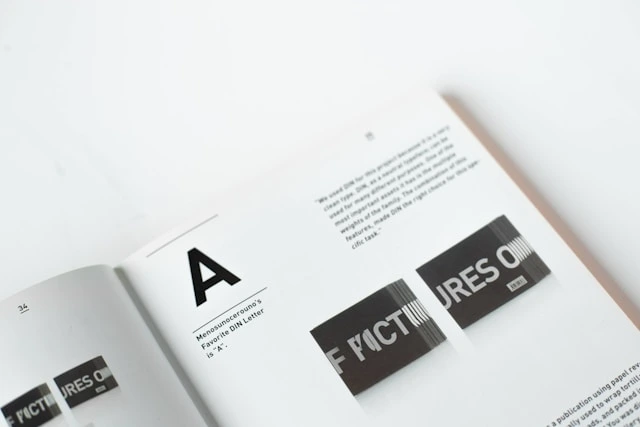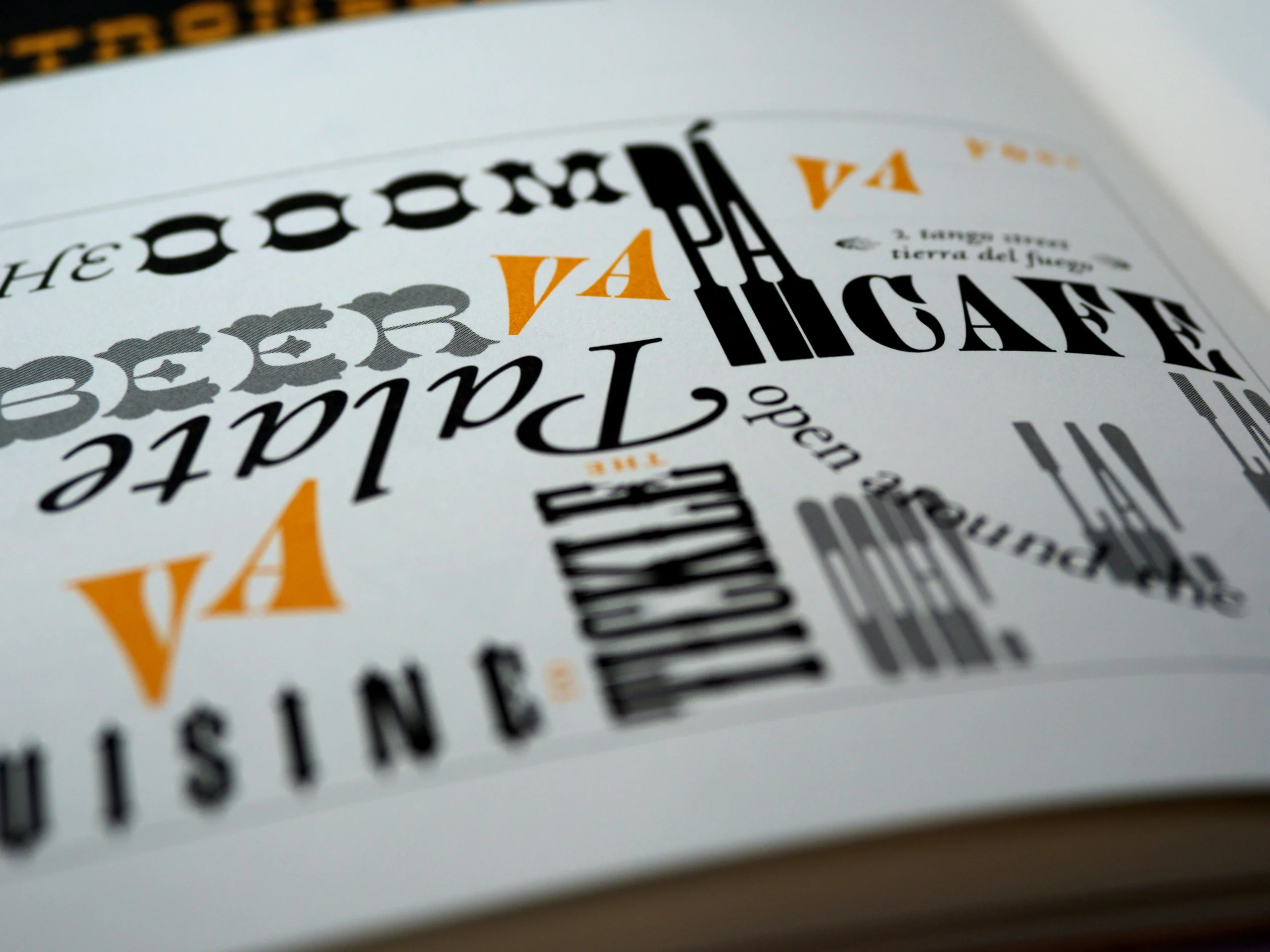
Typography serves as a foundational element in defining a brand’s identity and visual presence. The fonts you choose can convey emotions, establish a tone, and create a visual hierarchy that guides your audience’s perception. Typography is not merely about selecting a typeface; it’s about crafting a cohesive visual language that resonates with your target audience. A well-thought-out typography strategy can enhance brand recognition and ensure consistency across all touchpoints. In this article, we will explore various typography inspirations that can help you create a strong and memorable brand identity.
Read Also : Combinations of Quotes and Graphic Design
Typography refers to the art and technique of arranging type to make written language legible, readable, and visually appealing. It encompasses various elements, including font choice, size, spacing, and alignment. In branding, typography is crucial because it communicates your brand’s personality and values at a glance.
Inspiration: Clean Lines and Simple Fonts
Minimalist brands thrive on simplicity and clarity. Typography for these brands often features sans-serif fonts with clean lines and ample white space. Think of brands like Apple or Muji, which use understated typography to convey sophistication and modernity.
A minimalist brand might use a font like Helvetica or Avenir, paired with a monochromatic color palette. The focus is on legibility and elegance, allowing the product to take center stage.
Inspiration: Playful and Unique Fonts
Creative brands, such as those in the art, fashion, or design industries, often use typography that reflects their innovative spirit. This can include hand-drawn fonts, script styles, or custom typefaces that add a personal touch.
A boutique design studio might use a combination of a bold display font for headlines and a more whimsical script font for body text. This combination creates a dynamic visual experience that captures the brand’s artistic essence.
Inspiration: Elegant Serif Fonts
Luxury brands often opt for serif fonts that exude sophistication and timelessness. These fonts convey a sense of tradition and high quality, making them ideal for brands in the fashion, jewelry, and hospitality sectors.
A high-end fashion label might use a classic serif font like Didot or Bodoni for its logo and marketing materials. The typography is often paired with rich colors and luxurious textures to enhance the overall brand experience.
Inspiration: Modern and Futuristic Fonts
Tech brands typically lean towards modern, sans-serif fonts that convey innovation and forward-thinking. These fonts often have geometric shapes and clean lines, reflecting the cutting-edge nature of the industry.
A tech startup might use a font like Futura or Roboto, combined with vibrant colors and sleek graphics. This typography choice communicates a sense of progress and modernity, appealing to a tech-savvy audience.
Inspiration: Natural and Organic Fonts
Brands that focus on sustainability and eco-friendliness often use typography that reflects their commitment to nature. This can include earthy tones, organic shapes, and fonts that have a hand-crafted feel.
An organic food brand might use a rustic, hand-lettered font paired with earthy colors and natural textures. This typography choice reinforces the brand’s values and connects with environmentally conscious consumers.
Inspiration: Bold and Colorful Fonts
Brands targeting a younger audience often use playful and vibrant typography. This can include bold display fonts, bright colors, and dynamic layouts that capture attention and convey energy.
A youth-oriented clothing brand might use a mix of bold sans-serif fonts and playful script fonts in their marketing materials. The typography is often complemented by colorful graphics and patterns, creating an engaging and lively brand identity.
Inspiration: Clean and Trustworthy Fonts
Brands in the professional services sector, such as law firms or consulting agencies, often opt for clean and trustworthy typography. This typically includes serif or sans-serif fonts that convey reliability and professionalism.
A law firm might use a classic serif font like Times New Roman or a modern sans-serif font like Open Sans. The typography is often paired with a conservative color palette to reinforce the brand’s credibility and expertise.
Inspiration: Whimsical and Inviting Fonts
Food and beverage brands often use typography that evokes a sense of warmth and comfort. This can include playful script fonts, rounded sans-serifs, or even custom lettering that reflects the brand’s personality.
A coffee shop might use a combination of a friendly script font for its logo and a clean sans-serif font for its menu. This typography choice creates an inviting atmosphere that resonates with customers looking for a cozy place to enjoy their drinks.
Read Also : Typography Ideas for Memorable Branding

Know Your Audience: Understand who your target audience is and what type of typography resonates with them. Different demographics may respond better to certain styles.
Consider Brand Values: Choose fonts that align with your brand’s values and mission. For example, a brand focused on sustainability might opt for organic, hand-crafted fonts.
Limit Your Font Choices: Stick to two or three fonts to maintain consistency and avoid visual clutter. Use one font for headings and another for body text to create a clear hierarchy.
Test for Readability: Ensure that your chosen fonts are legible across different platforms and sizes. Test your typography in various contexts, such as print and digital, to ensure clarity.
Stay Consistent: Consistency is key in branding. Use the same typography across all marketing materials, including your website, social media, and print collateral, to create a cohesive brand identity.
Typography is a powerful element of brand identity that can significantly influence how your audience perceives your brand. By choosing the right fonts and styles, you can create a memorable and engaging brand experience that resonates with your target audience. Whether you’re a minimalist brand or a vibrant, youthful company, the right typography can help you communicate your message effectively and establish a strong visual identity.
Before we dive into the FAQs, remember that Rvand Type offers a wide selection of premium and unique fonts to elevate your brand’s visual identity. Explore our collection to find the perfect typography for your brand!
FAQs
Why is typography important for branding?
Typography is crucial for branding because it conveys your brand’s personality, enhances readability, and creates a visual hierarchy that guides the audience’s perception.
How do I choose the right font for my brand?
To choose the right font, consider your target audience, brand values, and the emotions you want to evoke. Test for readability and maintain consistency across all platforms.
Can I use multiple fonts in my branding?
Yes, you can use multiple fonts, but it’s best to limit your choices to two or three to maintain consistency and avoid visual clutter.
Where can I find unique fonts for my brand?
You can find unique fonts at Rvand Type, which offers a wide selection of premium fonts designed to enhance your brand’s visual identity.